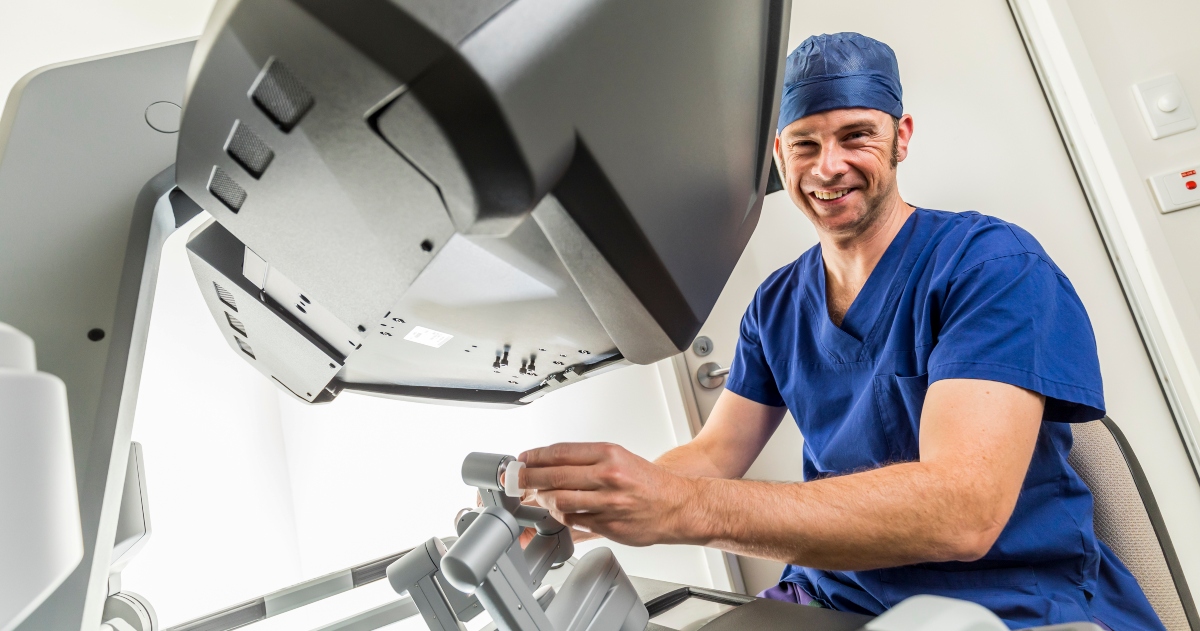New robot joins the Cabrini force in time for Pancreatic Cancer Awareness Month
20/11/2019

Every year in Australia, more than 3500 people are diagnosed with pancreatic cancer.
It’s a life changing diagnosis and for many, the outcome can be devastating.
As part of Pancreatic Cancer Awareness Month, one of Cabrini’s leading hepatobiliary and pancreatic surgeons, Charles Pilgrim, is shining a light on pancreatic cancer and demonstrating a new tool in pancreatic surgery – the Da Vinci Xi robot.
Mr Pilgrim said his interest in cancer of the pancreas started because he could see there was a need for more research to be done and an opportunity for improvements to be made.
“It still has a terrible prognosis and it’s one of the few cancers where nothing much has changed in terms of prognosis,” Mr Pilgrim said.
“You look at the incidence and mortality of pancreas cancer and it’s basically the same as it was in the 1960s.
“It’s clearly an area where we can improve, which is what attracts me to it because there are gains to be made and improvements to what we do and how we do it.”
Mr Pilgrim said one way Cabrini was improving outcomes for patients was by offering robotic assisted surgery, utilising the most up-to-date and advanced system called the Da Vinci Xi.
He said the robot was a tool used by surgeons to transform the field of minimally invasive surgery and ultimately help deliver better care.
The Da Vinci Xi has magnified 3DHD vision providing true depth perception, meaning the user can see tissue planes more clearly, identify structures more easily and stay oriented in the anatomy.
“It’s spectacular technology, its revolutionary technology,” Mr Pilgrim said.
He said the hands and arms of the robot made keyhole surgery easier and more dextrous, and in some ways could “actually enhance your surgical skill”.
Mr Pilgrim said each year there were about 800 new cases of pancreatic cancer in Victoria and of those, only 80 are suitable to undergo a pancreaticoduodenectomy (pancreatic resection), also known as a ‘Whipple’s Procedure’.
He said he had performed three pancreatic resections using the robot, which were also used for a number of other surgeries.
“It was fantastic, it’s a hard surgery and it makes it a lot easier,” Mr Pilgrim said.
“Cabrini was the first hospital in Victoria to do robotic-assisted pancreatic surgery, and the first case was about three years ago.”
Learn more about Cabrini’s cancer services.